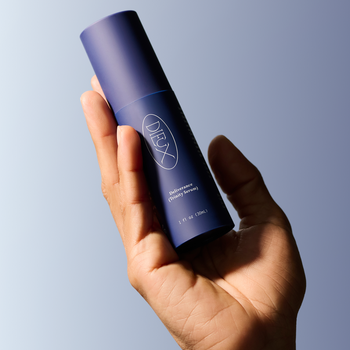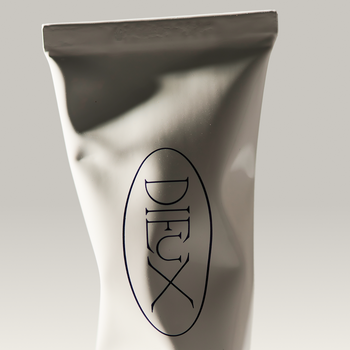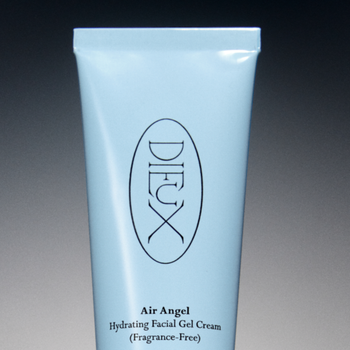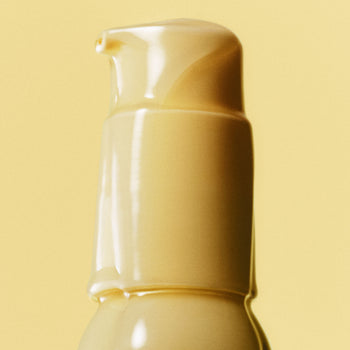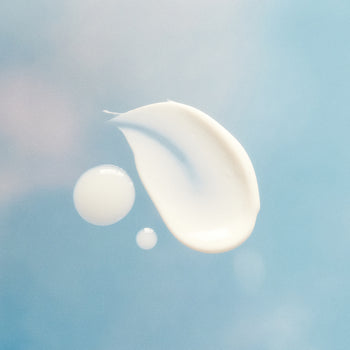Why Did We Make a Sunscreen Checker?
One of the reasons Dieux was started was because we saw the pipeline that beauty misinformation built. What starts with checking ingredients because you want to make better decisions for you and your family can snowball. And when brands, consciously or not, realize that fear is one of the most powerful emotions to drives a sale? Well, that’s when things can go off the rails.
Transparency, not fear
There’s research that connects distrust in the beauty and wellness space to distrust in institutions and science. This then has an impact on public health, how we vote for public servants and how progress is achieved. Fear in beauty can have ripple effects in so much more than just what’s in a serum.
So, where did this fear come from? Well, when it comes to women in healthcare, there’s a good reason for distrust. Women’s health issues aren’t studied for one, and, as one small example, Black maternal mortality is shockingly high in the United States. Organizations took advantage of this fear in the form of platforms and apps to “check the safety” of your products. Lobbying organizations like the EWG helped popularize and normalize “ranking” ingredients. While this sounds like a good idea in theory, in practice, it leads to more confusion, fear and products that may be less safe.
To us, the search for truth is how you protect yourself. Misinformation is always disempowering. So, how do you combat it?
Well, create a tool where people can learn. Not with fear, but transparency. And is there any category in skincare that’s more confusing than sunscreen? In the United States I’d argue people are not only confused, but also scared of a product that has been proven for decades to protect the skin.
So, welcome to Sun-Screener. An ingredient-list checker that will share…
- What’s in your sunscreen.
- Breakdown of all your “active ingredients” (keep scrolling to read more on that).
- Common “chemical sunscreen analogues” in your sunscreen.
- Relevant blog posts & educational videos to help you get the most out of your sun protection!
What’s an active?
Active ingredients are chemicals (zinc oxide, avobenzone and octisalate are some common UV actives) that help absorb harmful UV radiation. While we love the sun (the sun gives us life!), there can be too much of a good thing.
What’s a booster?
Sunscreen boosters are extra ingredients that aren’t UV filters/actives themselves, but help the UV filters work better.
Some boosters make sunscreen spread more evenly on your skin. Others help keep the formula stable with antioxidants. Some even absorb UV rays—just like regular chemical sunscreen filters.
Take butyloctyl salicylate, for example. It’s a common booster that can help certain chemical filters (like avobenzone) dissolve better in a formula. It can also absorb UV rays. Is that always why it’s used? No. But when used in higher amounts, it starts acting more like a sunscreen filter.
Here’s the important part: some boosters are very similar in structure to chemical sunscreen filters. (Scientists call these “analogues.”) That means they can absorb UV rays just like regular filters do—making them functionally the same.
So what’s the catch? The FDA doesn’t count these boosters as official sunscreen actives. Because of that, brands can use more of them than they’d be allowed to if they were labeled as UV filters. That raises questions about safety, since the “real” filters had to go through lots of testing and are regulated to be at certain percentages.
If a brand is using a booster that acts like a UV filter, we think they should say how much they’re using. That way, people can better understand what’s in their sunscreen and how it works.
And in our opinion? If your formula includes a UV-absorbing booster, pending the percent, it may not be a “100% mineral sunscreen.” Consumers deserve to know that.
Are you saying we can’t go outside?
Absolutely not, we love the sun. It’s important to understand context and history and why skin cancer is skyrocketing. Due to global migration and centuries of colonization, many people are in regions, even if it’s just for vacation, their ancestors were never exposed to. Regions like Australia have skyrocketing skin cancer rates because that equator life is not meant for pale people.
Combine that with the fact that we are living longer and the dangerous impact of pollution and UV radiation on skin cancer, it’s no surprise diagnoses are on the rise. It’s important to remember, no matter your melanation level, everyone benefits from sun protection. This includes being smart about time of day you’re outside, wearing protective clothing and seeking shade at peak hours.
As always, we want to hear your feedback. If you have any concerns or feedback let the Dieux team know here and if you’re a cosmetic chemist that formulated sunscreens please reach out to us! We are looking to work with more chemists as we build this tool out.
